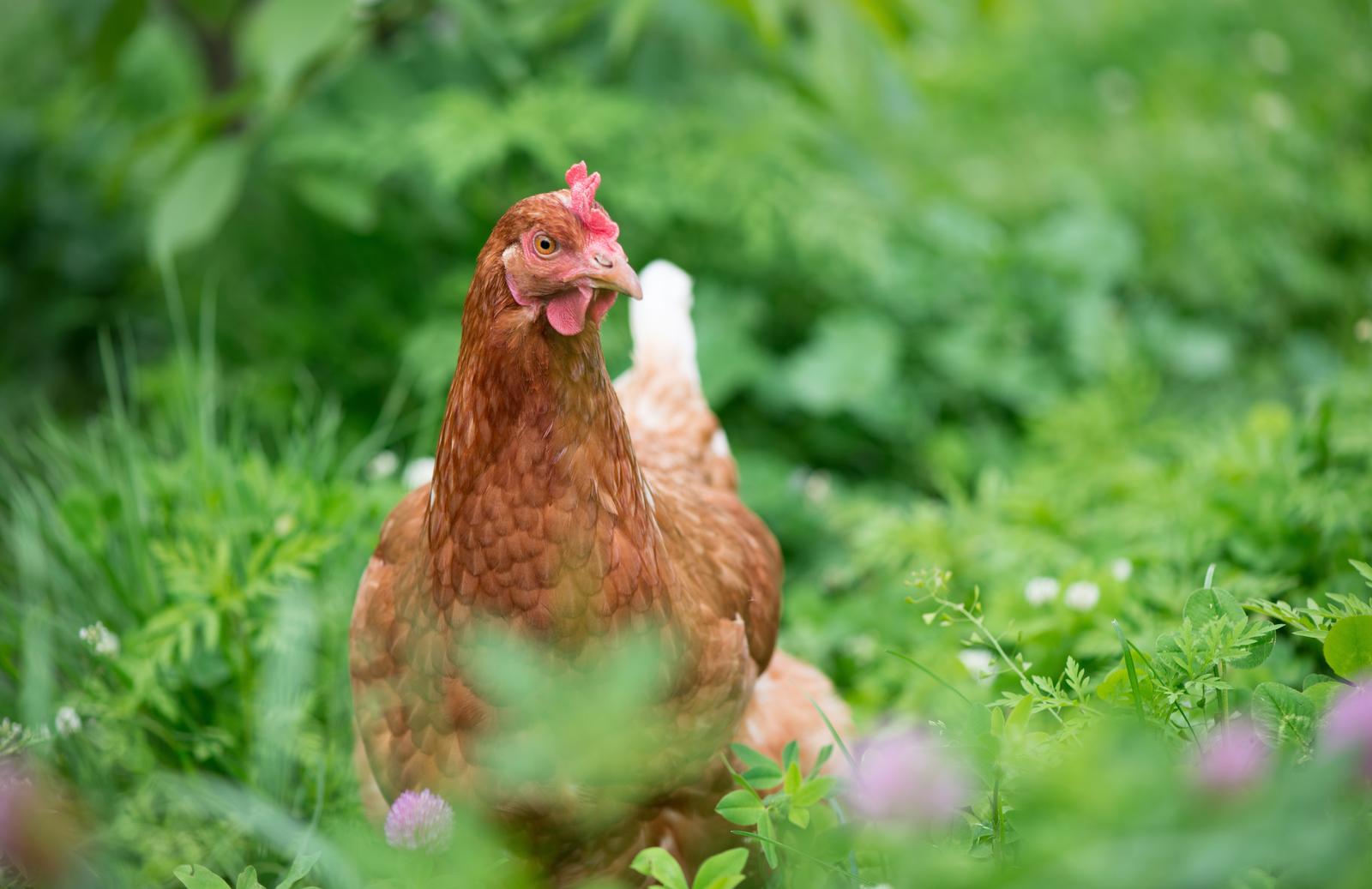Homesteaders and backyard chicken keepers must consider their birds’ longevity when planning their flock and producing resources from their chicken-keeping operation. Understanding how long chickens live will help you to plant production and replacement strategies to keep your chickens productive.
Most chickens live between 3 and 7 years but can live between 10 and 12 years in the right conditions and environment. Most older chickens are no longer productive in the latter part of their lives and are generally replaced with younger birds for better egg and meat production.
Understanding the factors that affect the lifespan of chickens and the signs of aging in chickens can help owners provide better care and ensure their chickens live long and healthy lives. We will explore the lifespan of chickens, factors that affect their lifespan, average lifespan, signs of aging in chickens, ways to increase their lifespan, and when it is time to replace your chickens.
Average Lifespan of Chickens
Chickens are popular farm animals that can provide eggs, meat, and companionship. One of the most common questions asked before people keep chickens is how long they live. The answer to that question is not straightforward, as many factors can affect a chicken’s lifespan. However, on average, chickens tend to live between three and seven years.
The lifespan of a chicken can vary depending on several factors, such as its breed, environment, and diet.
The purpose of the chicken breed can have a significant impact on their lifespan. For example, chickens bred for meat production may have a shorter lifespan than chickens bred for egg production or ornamental purposes.
Some chicken breeds, such as the Rhode Island Red or Plymouth Rock, are known for their hardiness and longevity, while others, such as the Cornish Cross, have a shorter lifespan due to their fast growth rate.
It’s important to note that each chicken’s lifespan will be unique to the individual, even within breeds, which is why we work on average lifespans for chickens.
There are many factors that can impact how long a chicken lives, such as the threat of predation, varying flock dynamics, diseases, and more. Understanding the factors that impact a chicken’s lifespan can help you provide the best care for your feathered friends and ensure they live long and healthy lives.
Factors That Affect A Chicken’s Lifespan
Many factors can impact how long a chicken will live. Some factors relate to the genetics of the chicken breed, while others are in direct control of the chicken owner.
- Breed. Different breeds of chickens have different lifespans. For example, heritage breeds tend to live longer than commercial breeds.
- Diet. A chicken’s diet can significantly impact its health and lifespan. A balanced diet that includes all the necessary nutrients is essential for a chicken’s well-being.
- Environment. Chickens kept in clean, dry, and comfortable environments tend to live longer than those kept in dirty, cramped, and stressful conditions.
- Healthcare. Regular checkups, vaccinations, and prompt treatment of illnesses and injuries can help ensure a chicken’s health and longevity.
- Predators. Chickens are vulnerable to many predators, such as foxes, raccoons, weasels, snakes, and hawks. Protecting chickens from predators can help prevent premature deaths.
Understanding the factors that affect the lifespan of chickens is crucial for owners to provide the best possible care for their animals and extend their lives to get the most benefit from the animals.
Signs Of Aging In Chickens
As chickens age, they will display physical and behavioral signs that indicate that they are entering their senior years.
If you are unsure how old your chickens are, you can look for the following signs to give you an idea of how far along they are in their lifespan. When you see these signs in your flock, you must make some decisions regarding the future of the older birds.
Physical Signs Of Aging Chickens
As chickens age, they may develop gray feathers, lose muscle tone, and develop visible signs of wear and tear, such as bald spots, blemishes, and scars.
They may also experience a decline in vision, hearing, and mobility, affecting their ability to move around and interact with their environment.
Behavioral Signs Of Old Chickens
Aging chickens may become less active and spend more time resting or sleeping. They may also become less interested in socializing with other chickens or engaging in activities such as foraging or dust-bathing.
Additionally, they may become more susceptible to stress and easily frightened or agitated.
Aging Chickens Reduce Egg Production
Decrease in egg production: As chickens age, they will naturally lay fewer eggs. This decrease in egg production can begin as early as 2 years of age in some breeds and continues to decline over time.
It’s important to note that these signs of aging can also be indicative of other health problems or stressors in a chicken’s environment. If you notice any significant changes in your chicken’s behavior or appearance, it’s essential to seek veterinary care to rule out any underlying health issues.
At What Age Do Chickens Stop Laying Eggs
Chickens will typically begin to lay eggs at around 4 to 5 months of age, and their egg-laying frequency will gradually increase until they reach peak production at around 1 to 2 years of age.
After reaching peak production, chickens will begin to lay fewer eggs over time and will eventually stop laying altogether.
The age at which chickens stop laying eggs varies depending on several factors, such as breed, environment, and nutrition.
On average, most chickens will stop laying eggs between 3 to 5 years of age. However, some breeds may continue to lay eggs for several years beyond that, while others may stop laying at a younger age.
It’s important to remember that there are several reasons why chickens may stop laying eggs, not just age. Factors such as stress, disease, poor nutrition, and changes in lighting can all affect a chicken’s egg-laying abilities.
If you notice a premature, significant decrease in egg production or your chickens stop laying eggs altogether, it’s important to assess their diet, environment, and overall health to identify any potential issues.
Additionally, providing a healthy diet, proper housing, and regular veterinary care can help ensure that chickens continue to lay eggs for as long as possible.
What To Do With Old Chickens
If you are using your chickens to generate an income on the homestead, an unproductive chicken is using up resources that can benefit other productive chickens.
This is where some hard choices must be made as a chicken owner. Older chickens that are no longer laying eggs still have value in the flock, but you must decide if this value warrants keeping them around.
Older chickens can teach younger chickens, provide a pest and weed control role on the homestead, and provide nitrogen-rich manure for your garden. Older hens are also better chick raisers than younger hens and do a better job of looking out for predators.
Older birds can also be slaughtered and used for meat on the homestead. They are not as tender as younger birds but are good used in a stew or a low and slow cook to tenderize the meat.
If you cannot bring yourself to kill and eat your old hens, let them live out their lives as part of the flock and dispose of them when they die of old age.
Caring For Aging Chickens
If you are not going to dispatch your old hens to the pot, you must provide living conditions that will help the older birds.
Provide some lower roosting spots in the chicken coop that are easier for the older birds to access with less effort.
Older chickens also benefit from a little extra warmth and light in the chicken coop, especially in the winter.
Providing feed cut or crushed into smaller pieces will help the older birds get the right nutrition with less effort. Watch out for younger chickens bullying older chickens as they try to exert their authority over the older birds that previously held a higher spot in the flock’s pecking order.
Conclusion
The lifespan of chickens can vary depending on various factors such as breed, diet, living conditions, the purpose of the chicken, and predators. On average, chickens can live for 3 to 7 years, with some breeds living longer than others.
Chicken owners can take several measures to promote the health and longevity of their chickens, including providing a nutritious diet, clean and safe living conditions, and predator control. By taking good care of your chicken flock, you can extend their life and productivity on the homestead.
References
https://www.almanac.com/raising-chickens-101-when-chickens-stop-laying-eggs
https://www.four-paws.org/campaigns-topics/topics/farm-animals/life-expectancy-of-chickens
https://www.backyardchickens.com/articles/using-older-chickens-for-meat-purposes.63091/


